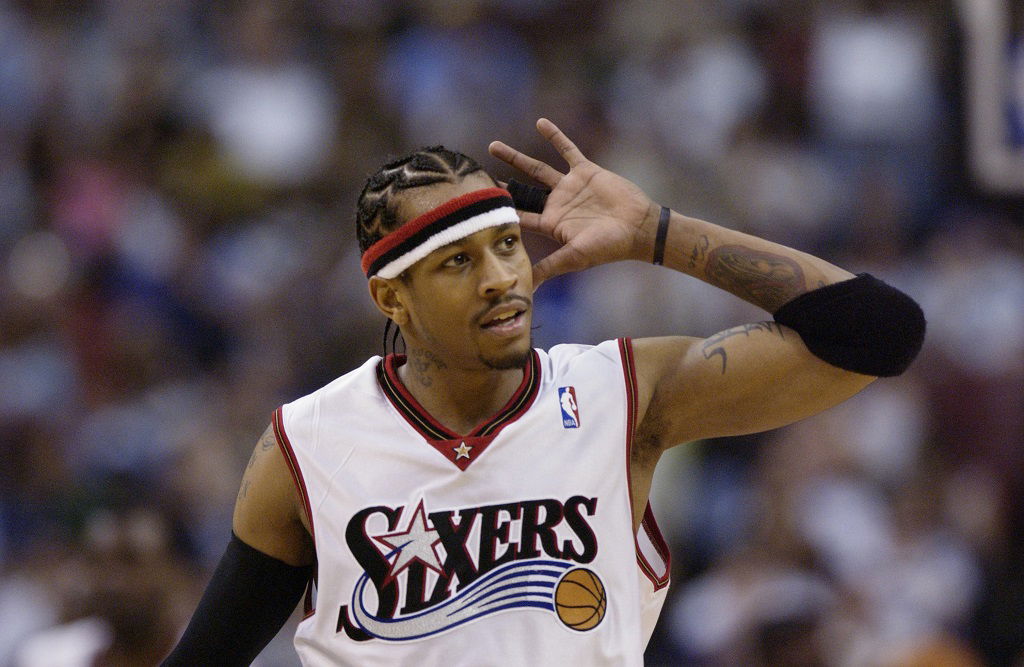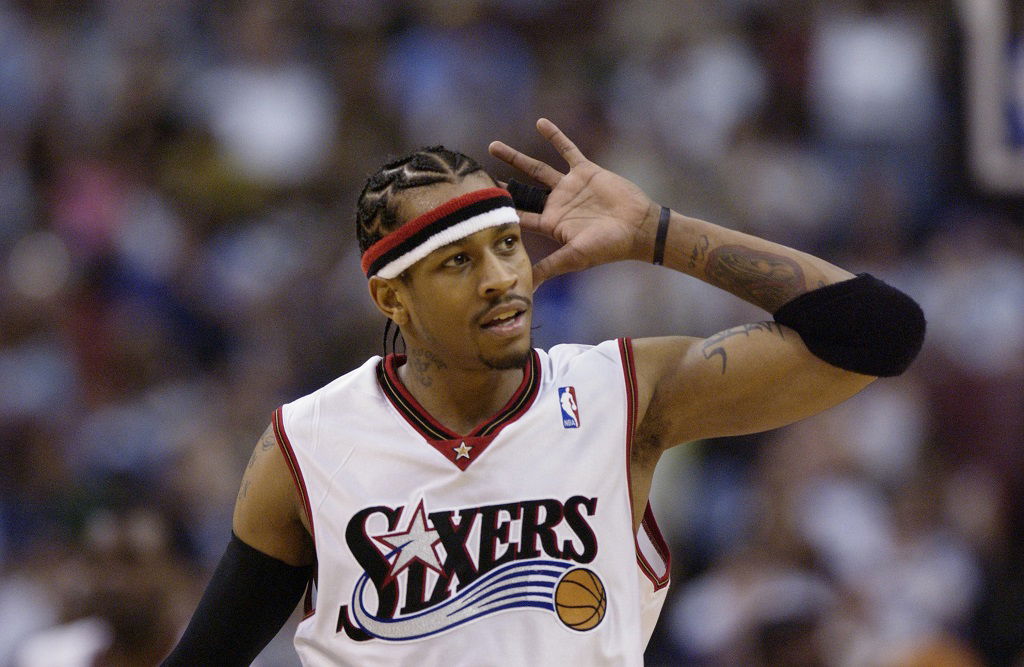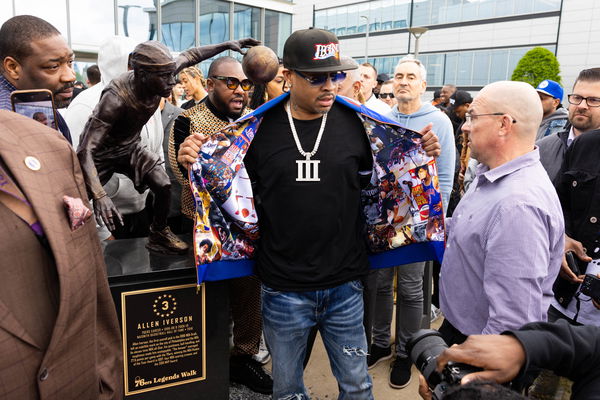



Allen Iverson’s relationship with NBA referees was always complicated. Loved by fans for his fearless style, he often clashed with officials who seemed less forgiving of his fire. In January 2007, things reached a boiling point. Just after a game against his former team, the Philadelphia 76ers, Iverson called out referee Steve Javie, suggesting a personal vendetta. That remark cost him $25,000 and, according to former referee Tim Donaghy, triggered something far worse: targeted officiating meant to “teach him a lesson.”
Watch What’s Trending Now!
Donaghy also admitted that referees openly discussed punishing Iverson for his comments. “In the pre-game meetings, we came to the conclusion that we were not going to give Allen Iverson any marginal plays to the basket,” he revealed. Those games felt different. Fouls that usually sent him to the free-throw line were ignored, and rare violations, like a discontinued dribble, suddenly appeared in the box score. What was supposed to be competitive basketball instead turned into a silent war played out on the court.
The water only further got muddier as Donaghy found himself in headlines for allegations of betting on games he officiated in. It’s something that the fans aren’t willing to forget.
Years later, on The Maverick Approach, Maverick McFly didn’t hide his frustration. “I don’t watch basketball anymore like you. It’s just like my last error was Allen Iverson. He was my favorite, and it really pisses me off too that they cheated him, with Tim Donaghy coming out saying that he had it out for him.” He took the chance to ask John Stockton, who made an appearance on the episode, to see if the latter also faced something similar. The question hung in the air, pressing on an uncomfortable truth about officiating and bias.
John Stockton didn’t think the league was rigged, but acknowledged personal biases existed. “Well, yeah. I mean, we’re people, and there’s things we like about guys and things we don’t like about guys, and that’s part of it.” He even shared a story about changing his mindset toward a referee who once “stuck it” to him and how it surprisingly improved their relationship. Maybe attitude could shift perception, but for Iverson, Donaghy’s confession confirmed what he had suspected all along.

USA Today via Reuters
Apr 12, 2024; Camden, NJ, USA; Philadelphia 76ers great Allen Iverson during the unveiling of the statue honoring him in a ceremony at the Philadelphia 76ers Training Complex. Mandatory Credit: Bill Streicher-USA TODAY Sports
Even today, tension between players and referees remains alive. DeMar DeRozan was fined $25,000 after calling officiating “terrible as s–” following a loss to Denver. Draymond Green took a $50,000 hit for questioning the integrity of the refs during the playoffs. Victor Wembanyama voiced frustration after a hard fall with no foul call, saying it “feels unfair sometimes.” Ty Jerome even singled out referee Natalie Sago’s “really bad” performance, adding fuel to the ongoing debate about fairness and accountability in NBA officiating.
Allen Iverson’s flopping tactics through the eyes of a veteran NBA referee
Derrick Stafford spent over three decades as an NBA official, working more than 1,700 regular-season games, 180 playoff matchups, and 13 Finals before retiring in 2018. In that time, he dealt with some of the league’s biggest personalities, and not all encounters were straightforward. Speaking in a 2022 report, Stafford recalled two Hall of Famers who made officiating particularly challenging: Karl Malone and Allen Iverson.
“They would intentionally bring the home crowd down on you. (Malone) was so big and strong that a lot of times, he would create the contact, and then he would flop like he got hit, which made it very difficult to referee him. A.I. was the same way, except A.I. was small. With just a little bit of contact, he would throw himself to the floor, too. A lot of times, he was used to getting those calls, so when he didn’t get those calls, he would just go off,” Stafford said.
Both Malone and Iverson earned their place among the game’s greats, yet they weren’t strangers to pushing the boundaries. Malone, at 6’9” and 260 pounds, often leveraged his physicality in ways that drew whistles in his favor. Iverson, standing just 6’0” and weighing 165 pounds, adapted the same tactic to suit his quicker, slashing style. When calls didn’t go his way, the former 76ers superstar was known to show his displeasure immediately.
These habits contributed to the NBA’s decision to update its anti-flopping rules in 2023, introducing technical free throws for offenders. While the policy change came years after Iverson’s playing days, it reflected a growing need to curb the very tactics that made officiating players like him both fascinating and frustrating for referees.

